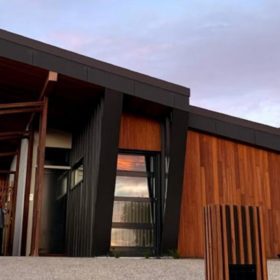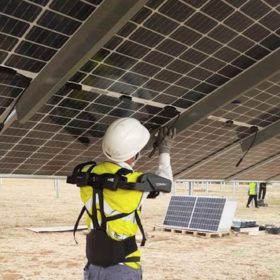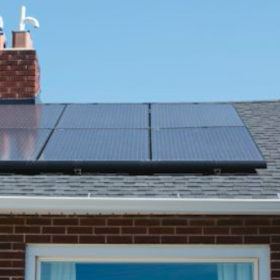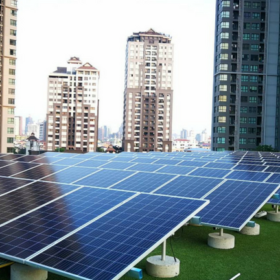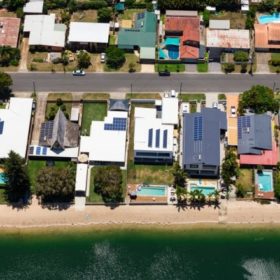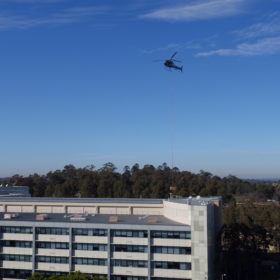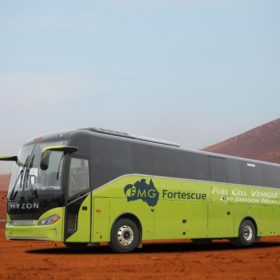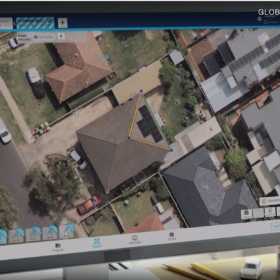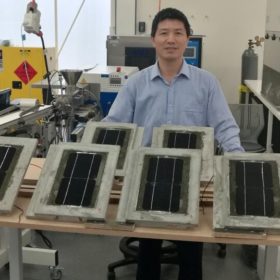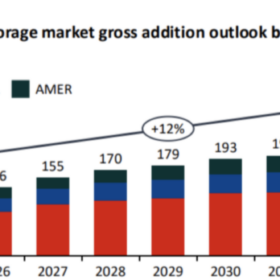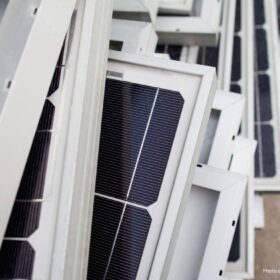Forget 7-star luxury, Adelaide is now home to a 10-star sustainable home
South Australia’s first ten-star home was completed last month, a home that consumes twenty times less energy than the average Australian household, in part thanks to its Fimer React 2 solar hybrid system.
Exoskeletons for solar panel mounting
Endesa, the Spanish unit of Italian power group Enel, is using a new technology in the construction of three solar parks in southern Spain.
We’re doing it wrong, UniSA study shows residential solar panels are facing the wrong way
A University of South Australia study has demonstrated that while solar panels in Australia are typically installed facing north to catch most of the sun’s arc, if you’re looking to export your solar into the grid you should really be orientating your panels to minimise the discrepancy between the times of peak use and peak production.
Power Ledger and BCPG team up to launch SE Asian REC marketplace
Western Australian tech startup Power Ledger and Thai renewable energy company BCPG are expanding their partnership with the creation of a Renewable Energy Certificate marketplace for SE Asia on Power Ledger’s peer-to-peer blockchain platform.
How a digital solar toolkit and localised solutions can drive economic recovery
Such is the Global Village effect that the more globalised we are the more localised we become. The impacts of a global pandemic have choked industries and driven us into self-isolation, but at the same time, we are seeing an acceleration in the ingenuity of sales efficiency in the solar industry and a realisation of the necessity of self-generation. Tie this up with a shift to local government action on renewables and sustainability and the global recovery from Covid-19 is very much a local affair.
Get to the chopper! How airlifting modules opens new solar frontiers
Is airlifting solar modules the future of commercial and industrial rooftop installation? Epho Commercial Solar recently employed the use of a helicopter to airlift pallets of modules atop 12 separate rooftops at Woolworths’ massive Norwest Support Office in Bella Vista. Epho Managing Director, Oliver Hartley, sat down with pv magazine Australia to tell us why.
DroneDeploy has soared to solar success in the U.S., now it’s Australia’s turn
Without droning on too much, the uses of drones in the solar industry are many, and this is why DroneDeploy has had such success in U.S. Now the company has opened a Sydney office and is planning rapid expansion with a focus on taking advantage of Australia’s widespread solar uptake. DroneDeploy’s Adam Savage sat down with pv magazine Australia to discuss.
WA Recovery Plan commits $22 million toward green hydrogen initiatives
Western Australia’s Recovery Plan continues to grow greenery as more renewable aspects of the state’s stimulus package come to light, specifically solar light that is. The state government has committed $22 million toward nine green hydrogen initiatives across the state, while also bringing forward its Renewable Hydrogen Strategy targets a decade and topping up the green hydrogen fund.
Advanced digital prospecting and selling tools for rooftop PV
Rooftop PV is a potent force in the race to rein in global warming. Read how a phenomenally successful Australian-developed aerial mapping technology is being deployed to speed PV uptake here and in the United States.
Solar tile with passive cooling
Researchers built the device by attaching 17%-efficient monocrystalline PV cells to a mortar roof tile that was doped with a phase-change material (PCM). The PCM solar tile provided 4.1% more power than the PV tile with no cooling agent in the winter, and 2.2% to 4.3% more during the summer.
